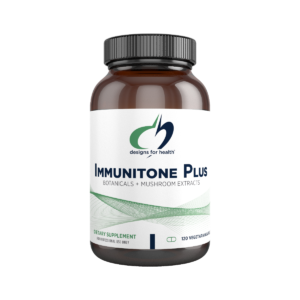Natural Supplements for Autoimmune Support: A Functional Medicine Approach

When dealing with autoimmune diseases, where the immune system mistakenly attacks the body, finding natural ways to support and modulate the immune response can be crucial. Functional medicine often recommends specific natural supplements that can help manage autoimmune conditions by supporting immune regulation and reducing inflammation. Here’s a guide to some of the most beneficial supplements that could be integrated into your health regimen.
Key Supplements for Autoimmune Disease Management
- Vitamin D: Often referred to as the “sunshine vitamin,” vitamin D is crucial for immune function. Many individuals with autoimmune diseases have low levels of vitamin D, and supplementing can help regulate the immune system.
- Omega-3 Fatty Acids: Found in fish oil and flaxseeds, omega-3s are well-known for their anti-inflammatory properties. They can help reduce inflammation throughout the body and are particularly effective in autoimmune conditions like rheumatoid arthritis.
- Probiotics: The health of your gut microbiome is intimately linked to immune function. Probiotics can help balance gut flora, which in turn can help regulate the immune system and reduce autoimmune reactions.
- Curcumin (Turmeric): The active component in turmeric, curcumin, has powerful anti-inflammatory effects. It’s been shown to help manage symptoms in autoimmune diseases such as lupus and rheumatoid arthritis.
- Selenium: This trace element plays a critical role in immune function. Selenium deficiency has been linked to increased risk of autoimmune thyroid disease, such as Hashimoto’s thyroiditis.
- Ginger: Another potent anti-inflammatory, ginger can help reduce symptoms of autoimmune diseases by decreasing inflammation and supporting overall immune health.
- Zinc: Essential for immune system function, zinc helps control inflammation and can be particularly beneficial in autoimmune disease management.
Incorporating Supplements into Your Autoimmune Disease Management Plan
While supplements can be beneficial, it’s important to remember that they should be part of a broader health management strategy including diet, lifestyle, and possibly medication. Here are some tips for incorporating supplements safely:
- Consult with a Healthcare Provider: Before starting any new supplement, especially if you have an autoimmune disease, it’s crucial to consult with a healthcare provider knowledgeable in both supplements and autoimmune conditions.
- Quality Matters: Choose high-quality, pharmaceutical-grade supplements to ensure purity and potency, reducing the risk of contaminants.
- Monitor Your Response: Keep track of any changes in your symptoms or general health after starting a supplement. This can help your healthcare provider make necessary adjustments.
- Personalization is Key: Remember that the effectiveness of supplements can vary from person to person. What works for one individual might not work for another, so personalization of your supplement regimen is essential.
Conclusion
Natural supplements can play a significant role in managing autoimmune diseases by supporting immune function and reducing inflammation. By carefully selecting and properly integrating these supplements into your overall health plan, you can achieve better management of your autoimmune condition and improve your quality of life. Always remember to coordinate with a functional medicine practitioner or your healthcare provider to tailor the right supplement strategy for your specific needs.


